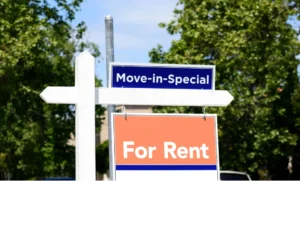`Under 23 Need Not Apply`: Is It Legal to Exclude College Kids?
by Janet Portman, Inman News
 Q: We own a vacation home at the beach, which we rent out as well as use ourselves. It has three bedrooms, ideal for two or three couples, or a family or a bunch of unrelated adults. We want to avoid having it rented by college students, whom we’ve found to be risky (lots of damage).
Q: We own a vacation home at the beach, which we rent out as well as use ourselves. It has three bedrooms, ideal for two or three couples, or a family or a bunch of unrelated adults. We want to avoid having it rented by college students, whom we’ve found to be risky (lots of damage).
Can we specify “No one under 23 years of age” in our ad? –Bill and Suzanne H.
A: You’re not alone among vacation-home owners, who pale at the thought of six or eight young adults renting their homes for an extended party. It’s not unreasonable to believe that your property will suffer more wear and tear from such a group than it would from, say, two families with children, or a group of middle-aged adults. But that’s not the end of the story.
All landlords, including vacation-home owners who rent their properties only occasionally, are subject to the federal fair housing laws. Those laws forbid discrimination on the basis of “familial status,” which means families with children under the age of 18 (and pregnant women).
The ban on familial status discrimination is also the basis for not allowing landlords to refuse to rent to older tenants, as can happen when a landlord assumes that an elderly tenant, simply because of his or her age, would not be a good tenant.
So you see, if you were to decide that you didn’t want children in your home, or didn’t want elderly tenants, you’d be running afoul of the federal ban.
Your question, however, concerns a minimum required age. And here it’s not so clear that the federal familial status prohibition would apply. Creative lawyers could think of all sorts of arguments to support a case, and they may in fact prevail (after all, if merely being old entitles a tenant to familial status protection, why wouldn’t a youthful tenant enjoy the same protection?). But wait — there’s more.
Many states and even localities have their own fair housing laws, which protect more classes of tenants than the federal scheme. And here’s where you could run into trouble: Forbidding discrimination on the basis of age is common in many states, including vacation destinations such as California, Hawaii and Montana. In those states (and in localities that have added the same prohibition), your ad would be illegal.
Before resigning yourself to living with the risk of unruly guests, think about how you can accomplish your goal (minimum damage) in a legally safe way. You may limit the number of guests to two per bedroom (in some states, you may have to allow more). You may charge a hefty security deposit (usually, the deposit limits set by law for regular tenancies don’t apply to short-term rentals, though other aspects of the security deposit laws may still apply). And most important of all, you can screen your would-be guests thoroughly. Ask for references and check them out.
Chances are, if you’re screening some 18-year-olds who want a pad for a weeklong bash, they won’t be able to furnish the kinds of solid references you need, and you can reject them on this legal basis.
Janet Portman is an attorney and managing editor at Nolo. She specializes in landlord/tenant law and is co-author of “Every Landlord’s Legal Guide” and “Every Tenant’s Legal Guide.” She can be reached at [email protected]. What’s your opinion? Leave your comments below or send a letter to the editor. Copyright 2009 Janet Portman
See Janet Portman’s feature, Better Alternatives To Giving Sick Tenant the Boot.
American Apartment Owners Association offers discounts for landlords on products and services related to your commercial housing investment, including real estate forms, tenant debt collection, tenant background checks, insurance and financing. Find out more at www.joinaaoa.org.
Let us know what you think by commenting below. For questions about our blog, contact our editor at [email protected].
To subscribe to our blog, click here.













 Accessibility
Accessibility